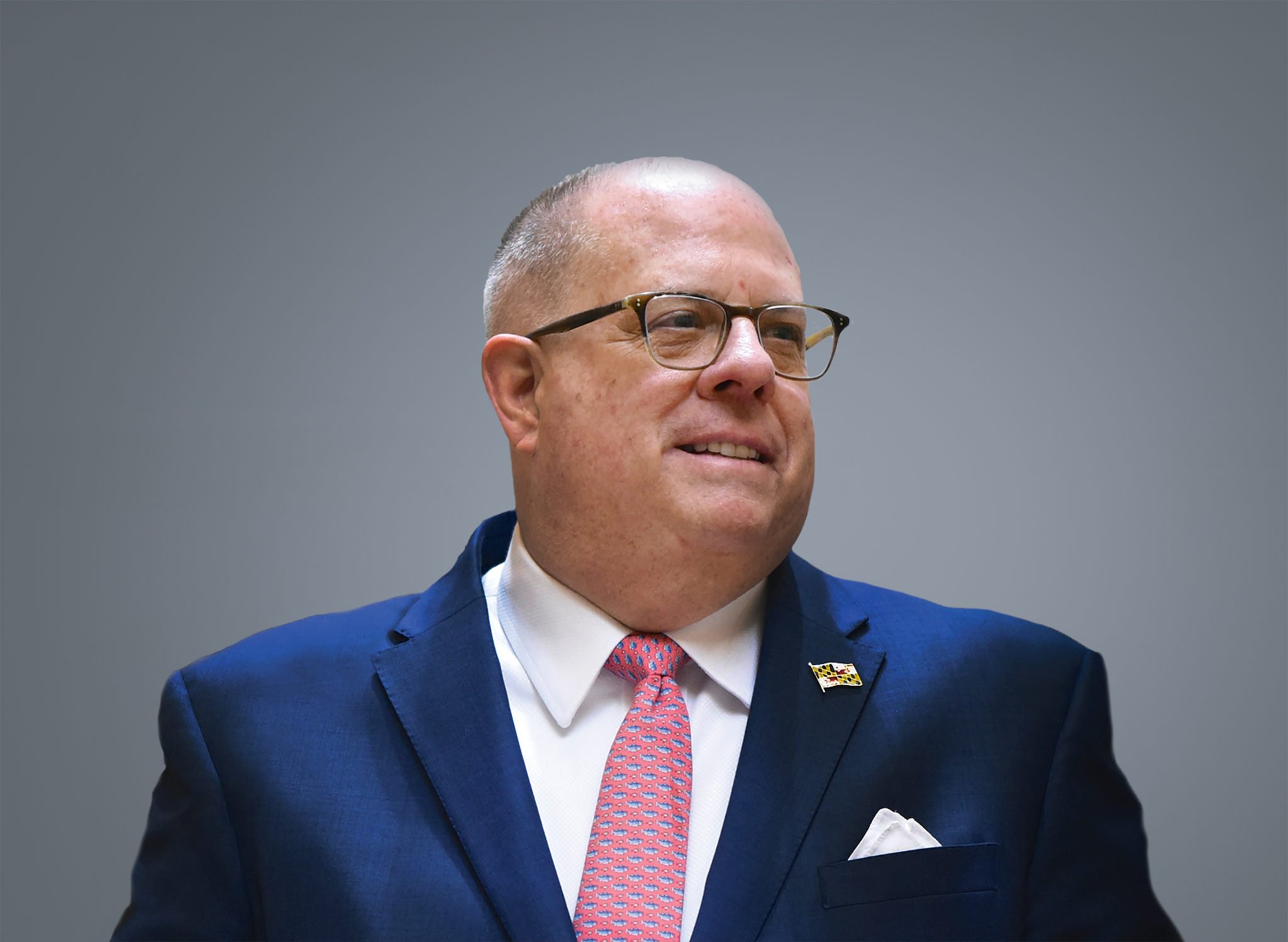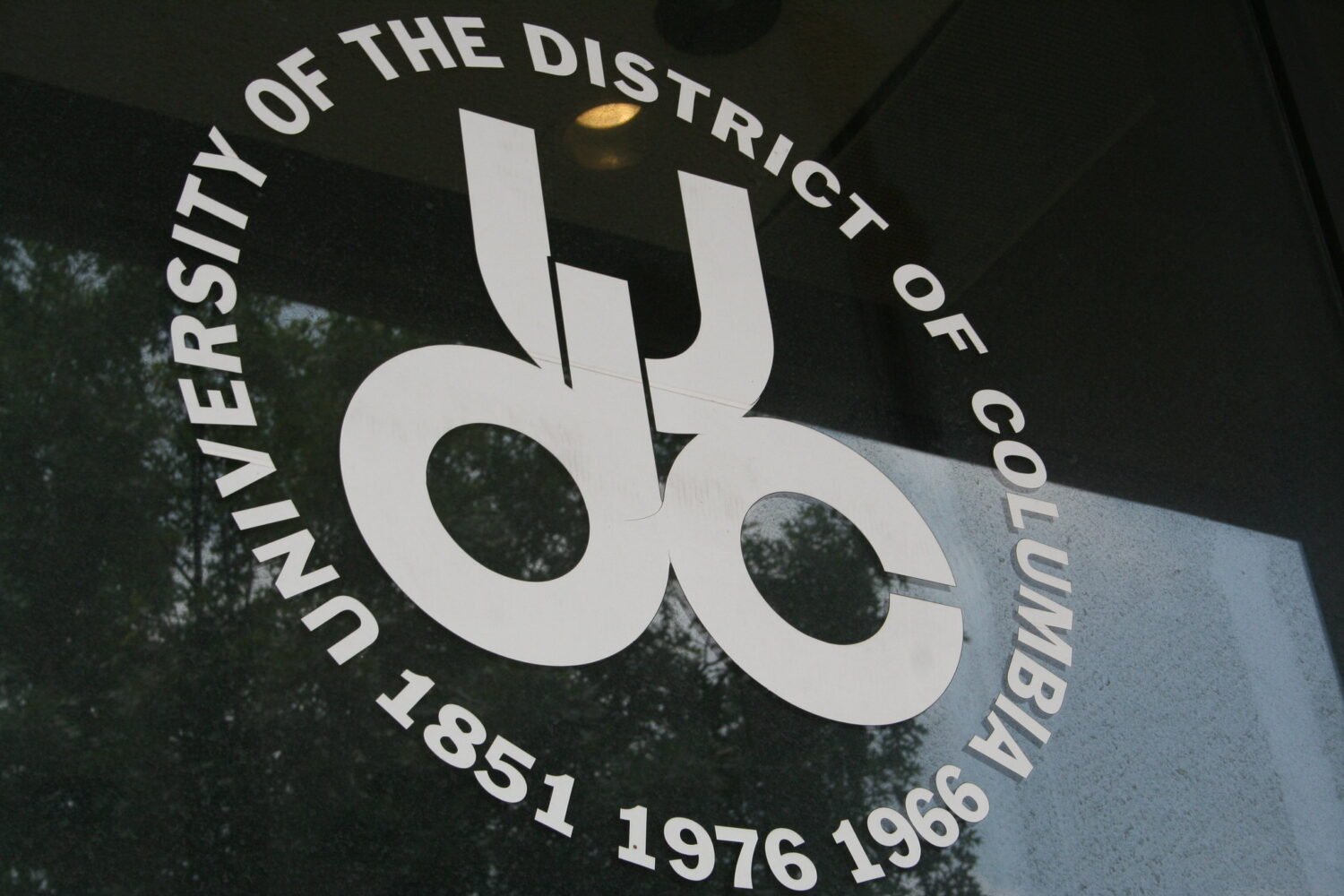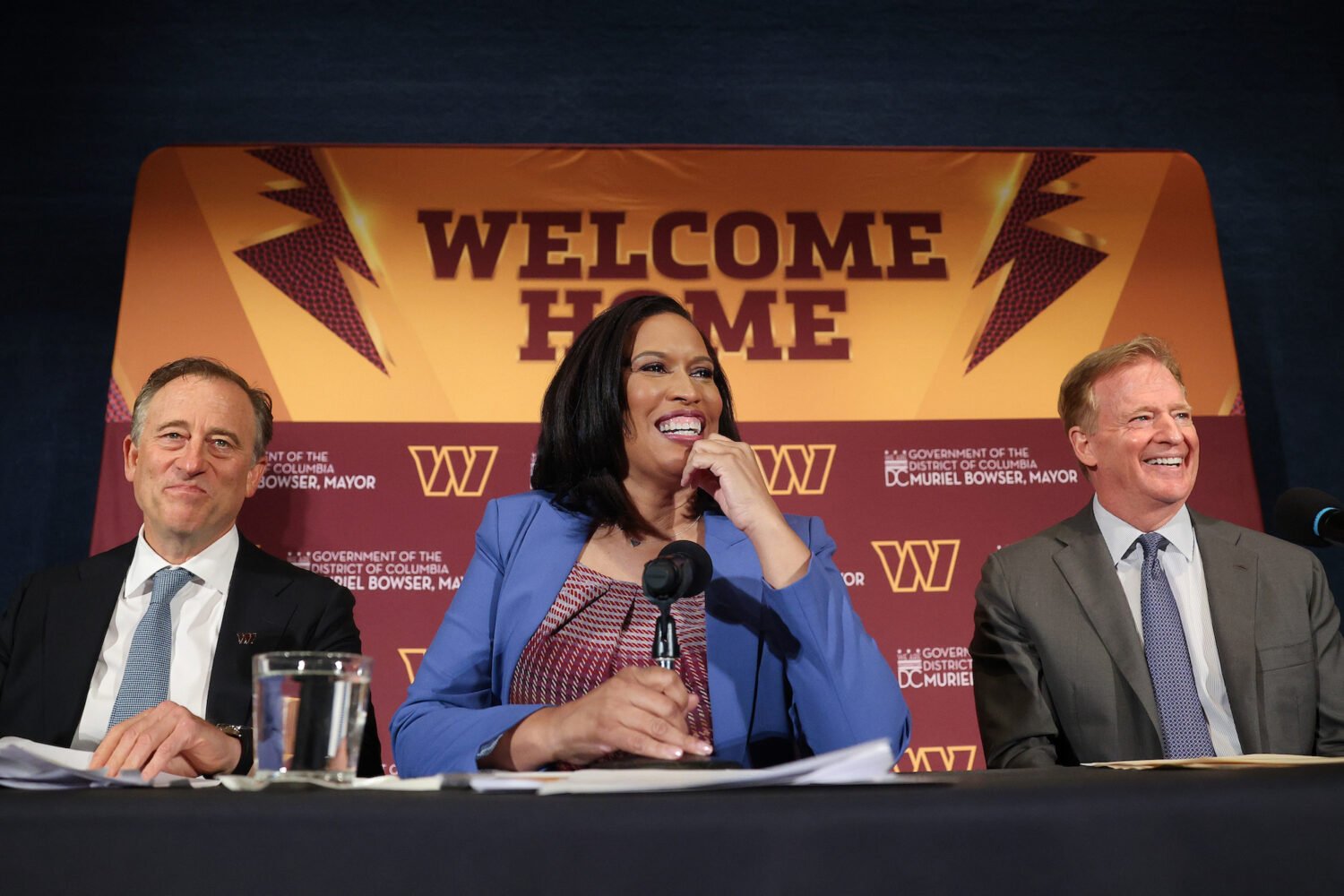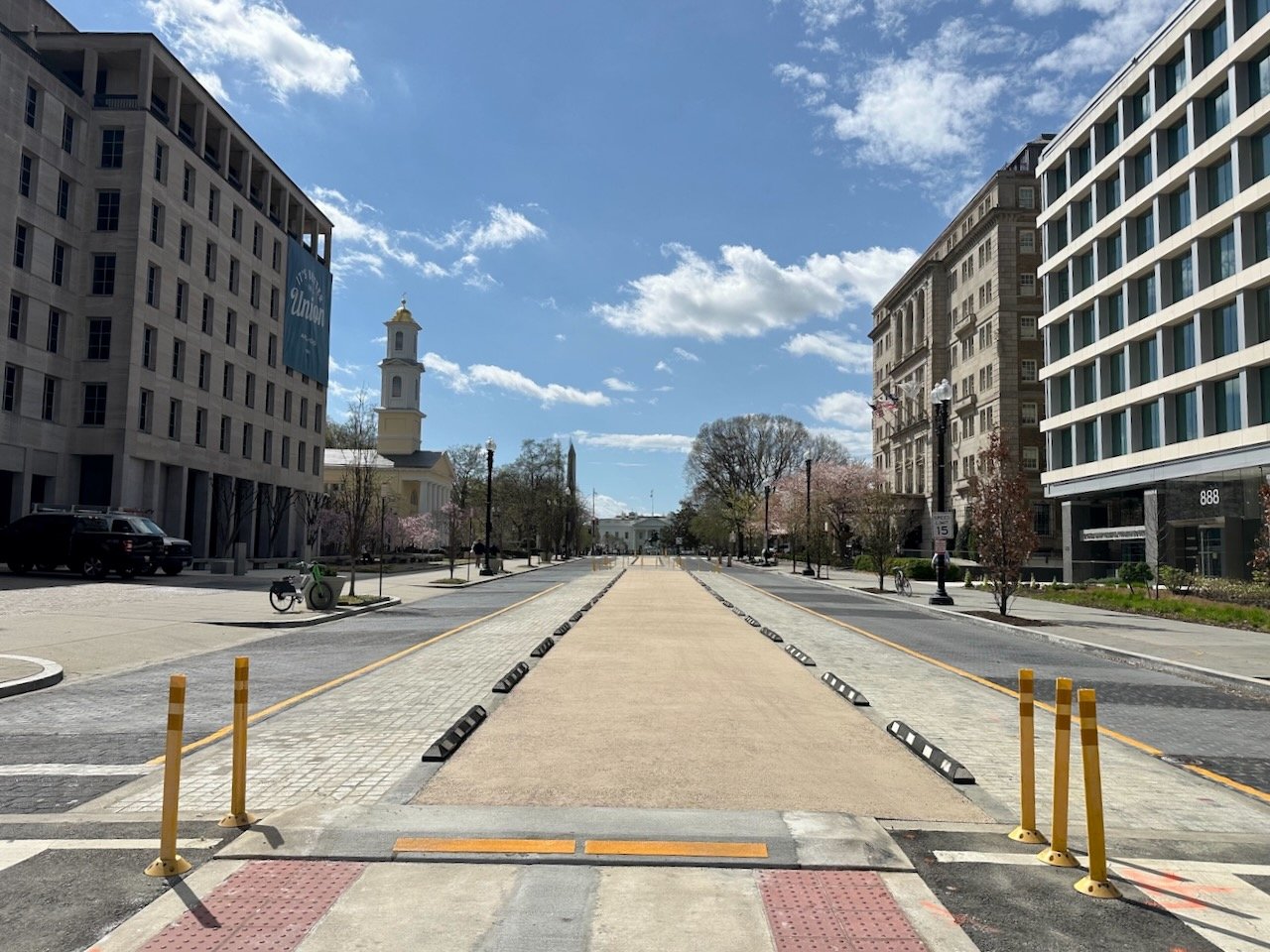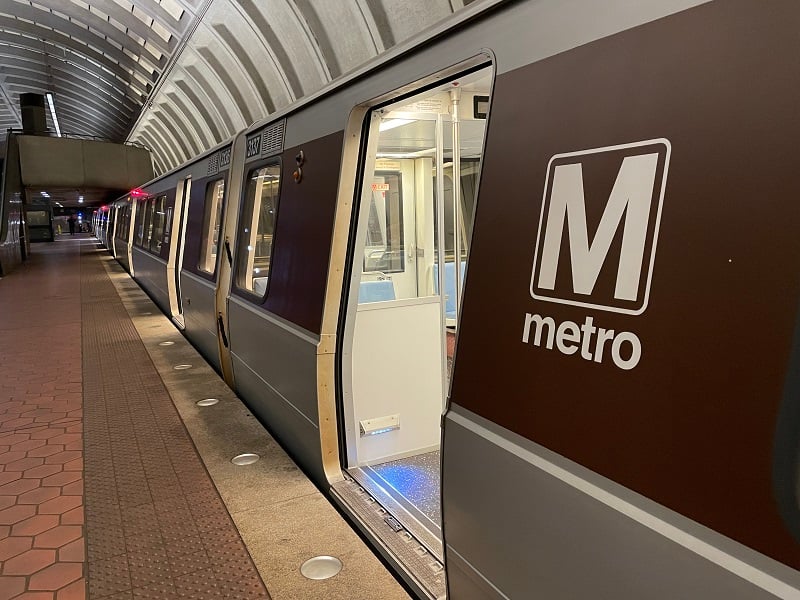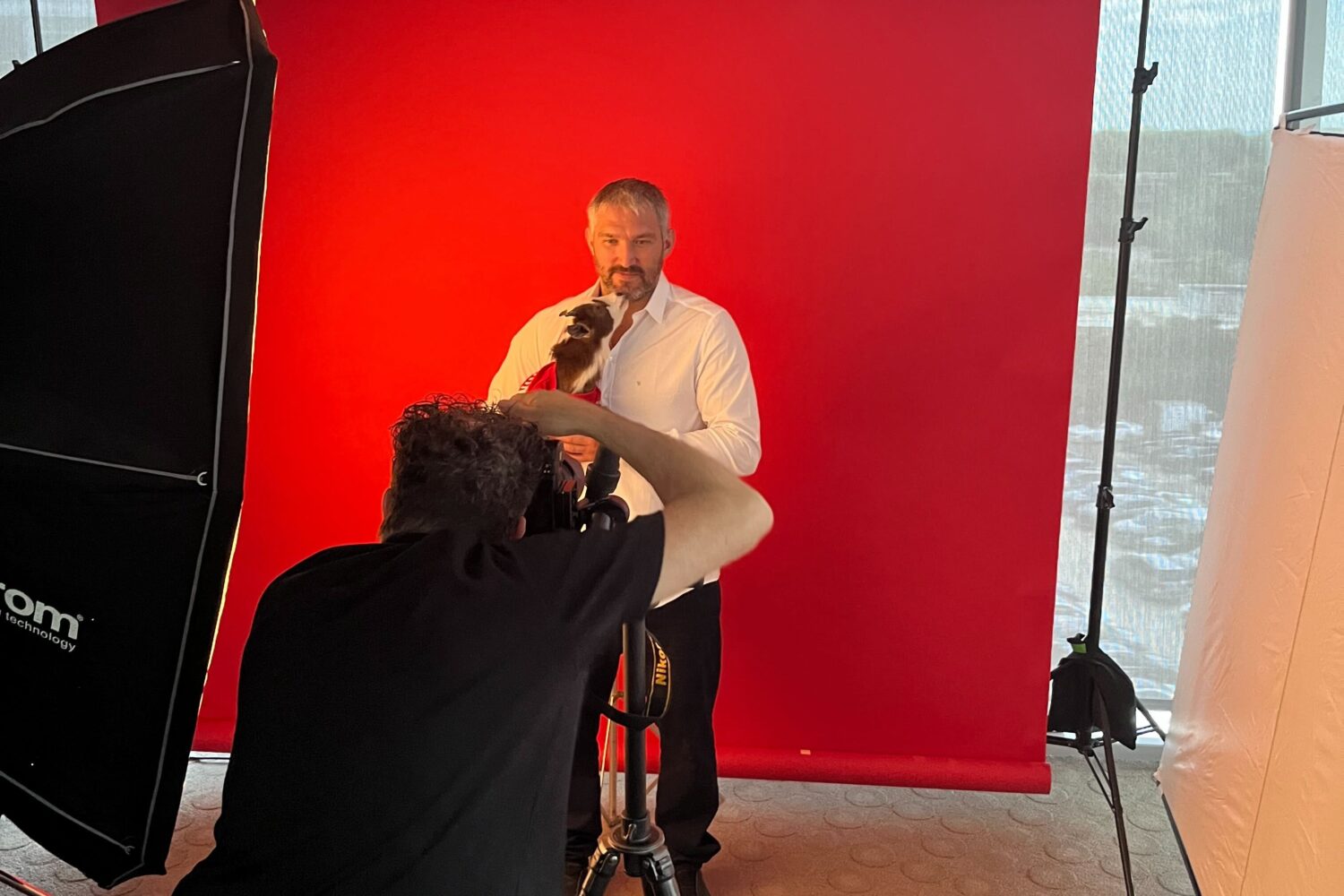In his new book, Still Standing, Maryland Governor Larry Hogan reflects on his time as a Republican leader of a blue state. In addition to recounting his experience with the Baltimore riots and his battle with cancer, Hogan writes about how he’s managed the pandemic. We chatted with him about what the past few months have been like.
You found out about the first three positive Covid cases in Maryland under rather dramatic circumstances – you had just taken off to fly to Florida for a children’s charity weekend at the Orioles’ spring training facility. What was going through your head in that moment?
We’d been looking at this for a month and we kept getting no positive cases. I kept saying I wanted to cancel this trip, but we had committed to do this thing for charity with the Orioles. I kept saying, right up to the moment we left, “Are you sure it’s okay? Are you sure it’s okay?” The plane had just lifted off the ground, and my assistant came up and said, “We just got the word that we have these three cases.” If I had a parachute, I would have jumped out of the plane. It was something we’d been preparing for, but the timing couldn’t have been worse. I was probably on the ground in Florida for seven or eight minutes, and that was just sprinting from one end of the airport to the other to try to rush back as quickly as possible. [The flight back] was just a few hours, and we were trying to prepare. But the WiFi went out for most of the flight, which made it even more difficult to communicate as we’re trying to talk with our folks on the ground back in Maryland. I touched down on the BWI tarmac and sped off to Annapolis to do a press conference. I signed an executive order declaring a state of emergency and explained to the people of the state what was going on. I left my wife in Florida to do the charity events and throw out the first pitch at the Orioles-Yankees spring training game in Sarasota. And that was the start of what has been pretty much a nonstop whirlwind of activity every day since then.
I was a little surprised that the book didn’t include anything about how you specifically worked to manage the response with leaders in the Washington region. I know that early on, you and other area leaders like Governor Northam and Mayor Bowser were working together, but that coordinated response seems to have dissipated – Maryland and Virginia reopened before DC, and different activities have opened at different times in each state. Why hasn’t there been a unified response?
I don’t think that’s true at all. We had a great meeting today with Governor Northam and Mayor Bowser, and we continue to stay in communication. Our staffs are talking to each other almost every day, and we communicate regularly on regional issues. We’ve never been 100 percent in the same position, but we cooperate really well. We talk about regional hospitals, WMATA, what each of us are doing in our state, the problems we’re faced with; I don’t think anything’s changed from the beginning of the crisis till today. I’ve led 46 calls with America’s governors, and [Mayor Bowser] is not a governor so she’s not in those, but she, Ralph Northam and I talk all the time.
Bowser has complained in past press conferences that she’s been left out of those gubernatorial discussions, which, given the lack of federal response, seem crucial to understanding the national response. Why wasn’t she included?
I actually invited her into conversations and she participated in a couple. [But] these are calls with the White House with the President or Vice President; the White House actually runs the calls. I can’t speak as to why I think they cut her out of discussion, but it wasn’t because of us. I’m the one that pushed to try to get her included.
Speaking of the Vice President, I’m interested in your relationship with Mike Pence. You write in the book that you respect him as a person and a leader, yet he’s hung you out to dry multiple times in directing the nation’s Coronavirus Task Force. He’s presented a positive public front with President Trump when you and the other governors were begging for testing. How do you think he’s handled the nation’s pandemic response?
I think Pence has done a good job. I have a good relationship with Pence. He and I served together on the executive committee of the Republican Governors Association before he ran for Vice President, and we’re still very friendly today. I chair and lead the [White House] discussions on behalf of the governors, and most of the time, the Vice President is chairing the calls on behalf of the administration and chairing the Coronavirus Task Force. We’ve had a number of really good and productive personal phone calls, and I give him a lot of credit. I’m pretty honest and direct with him both in our meetings with the governors and our personal sessions. [I’ve been able to say], these are the things that we as governors are interested in having addressed, and let him know when I think there’s a problem. And while we don’t always agree, I appreciate the fact that I can have frank discussions with him.
But you write Pence ignored your phone call when you were trying to get more testing for Maryland; you write you felt you had “nowhere else to turn” and secured 500,000 tests from South Korea. A recent Washington Post story reported that during those negotiations with South Korea, a domestic distributor tried to sell you a million tests for two thirds of the price. Why didn’t you take that offer?
I never heard of that until I read that article. Some guy says he sent an email two or three weeks after we began working on the Korean tests, but I don’t know if it’s true or not. (Note: The Washington Post obtained copies of the emails from sales consultant Rick Vohrer, which were sent after the South Korea deal had been launched, to Maryland’s health department deputy director of governmental affairs Jake Whitaker). I don’t know who the person is or whether that was a real offer. All I can tell you is that there were almost no tests available in America at the time. We announced [the deal] with South Korea on April 20, but it took us 22 days to negotiate. We began talking with them on this very complex negotiation in March, and it took eight state agencies negotiating with multiple levels of government in two different countries. We certainly wouldn’t have done that if some guy was standing on the street corner with a million tests in America to sell us.
As you continued to hold your ground about the need for testing and stood up to the President, you wrote in the book you were concerned he might brand you with one of his famous nicknames, offering up “Fat Larry” as a suggestion.
He seems to have a sarcastic fighting nickname for a lot of people; I was happy that he didn’t have one for me. I put on 30 some pounds during my cancer battle that I’ve never taken off, so I thought it was going to be “Fat Larry” or “Cancer Boy.” I’m sure he could come up with something creative. But, in spite of the fact that we’ve had some skirmishes and pushback on some things, he’s never really come after me in that way, which I appreciate.
If it came to that, did you have a nickname ready to go for the President?
No, I don’t usually engage in that kind of stuff.
In the book, you talk about how you considered a 2020 run, and you mention that some of Trump’s cabinet secretaries were encouraging you to enter the race. What exactly were they saying to you?
I wasn’t really weighing the numbers and trying to determine whether to run. I had won overwhelmingly in a deep blue state in a year with a big blue wave. There was a lot of talk about, “maybe this is a different kind of Republican” that became a buzz. I didn’t start it; I never started an exploratory committee and I never seriously pursued it, but there was some talk about it. I didn’t dismiss the idea completely, but I never really made any overt efforts. There were folks that were certainly concerned that the party might have to look at an alternative.
So were members of the Trump administration explicitly asking you to run in 2020? And, if so, who in the administration was pro-Hogan?
It wasn’t like the whole Trump administration was pro-Hogan, but I was getting phone calls and having discussions. I’d see a lot of these folks at different events, and there were a couple of conversations [where people said], “We can’t tell you how much we appreciate what you’re saying and the things that you’re doing, it’s important to the party and the country.” And there were one or two folks in the administration who said, “you should really consider [running].”
And how about 2024: Who’s asked you to run in four years?
Well, there’s just a whole lot of talk about it. Everyone’s speculating that I wrote the book [because I’m going to run]; it’s not the reason I wrote the book. But there’s been tons of speculation about that. I mean, regardless of what happens in November, [people are looking at] what direction the Republican Party goes in. I’ve got a really important day job until January of 2023. I’m in the middle of a global pandemic in the worst economic collapse in our lifetime and chairing the National Governors Association. I’m not talking about any kind of campaign in 2024.
You didn’t campaign for Trump in 2016. Will you campaign for him in 2020?
I am not going to be getting involved in the presidential politics in 2020. As the chair of the National Governors Association, it’s probably not appropriate to get involved in partisan politics. I represent governors on both sides of the aisle, and I’ve got a whole lot of other things that can keep me busy.

